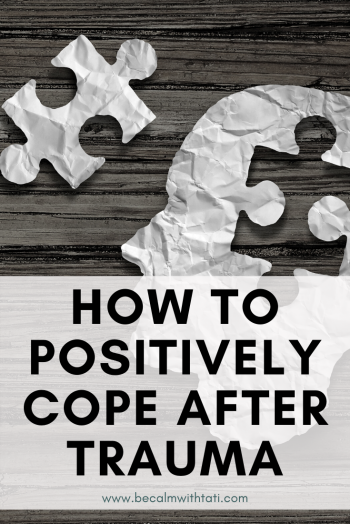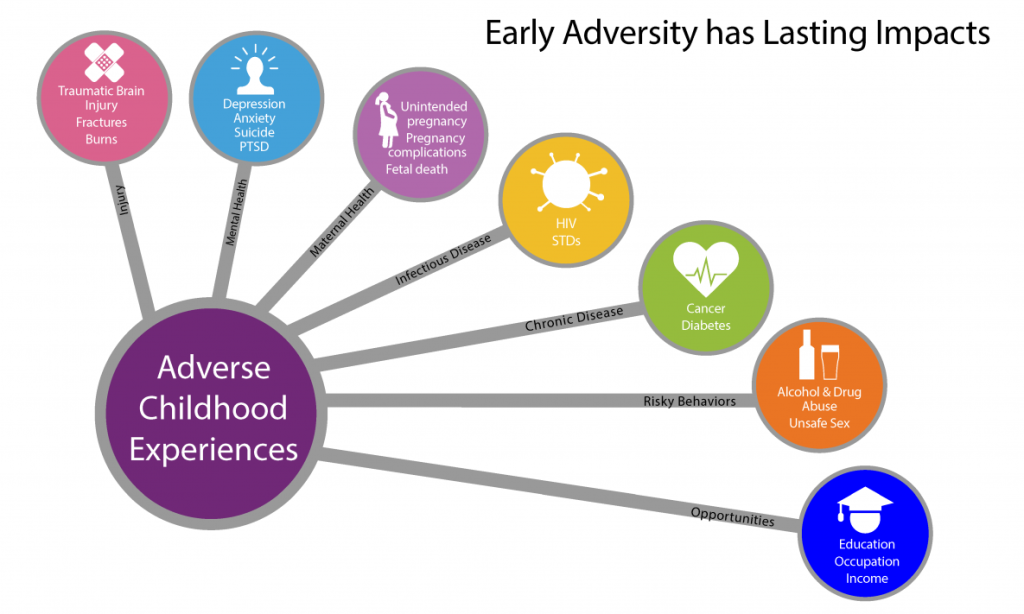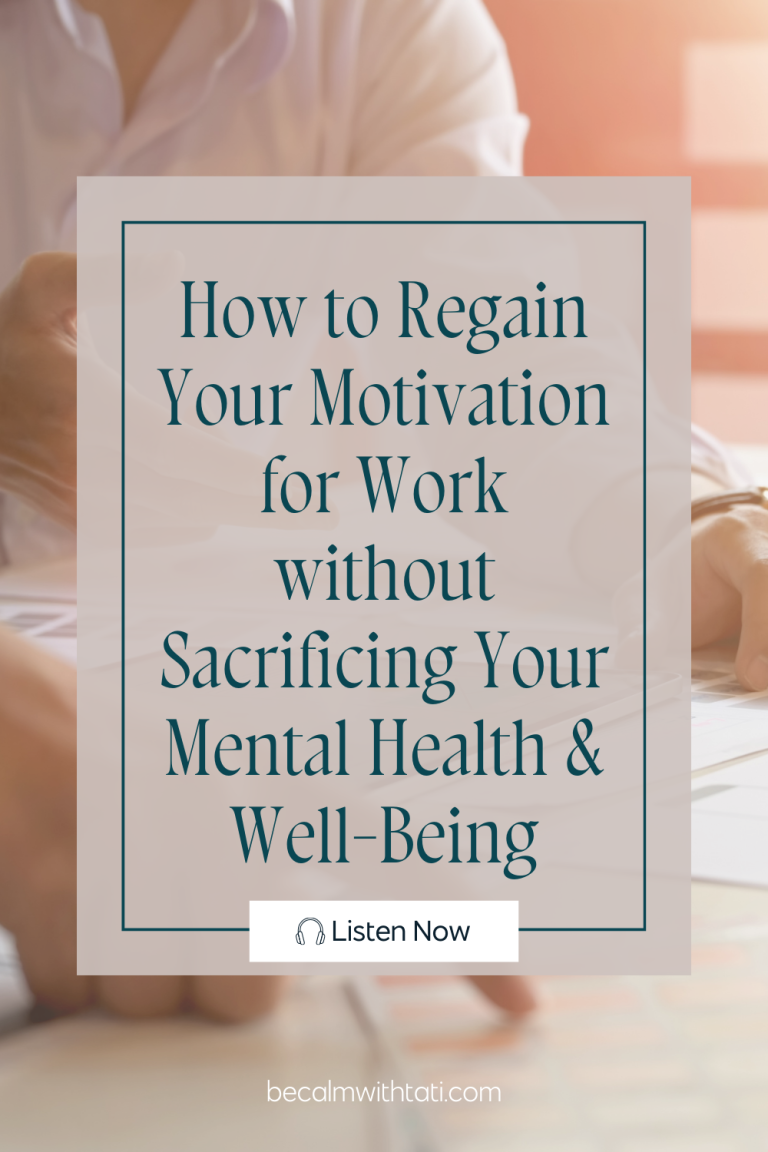What Is Resiliency?
Coping with the loss of a loved one, a sexual assault, witnessing violence, or being the victim of abuse are but a few of the many experiences that can be considered traumatic.
Changes in your mood, behavior, and thoughts are normal after experiencing or witnessing trauma, but they do not have to be permanent.
Resiliency occurs when you are able to properly process and move on from a traumatic experience. It can be difficult, but it is possible for you to define how a traumatic experience influences your life and perspective, instead of allowing the traumatic experience to define you.
Learning how to cope with trauma can sometimes be an uphill battle, and that’s okay. Coming out stronger on the other side is totally worth it.

Our Trauma Problem
Ignoring a problem doesn’t make it go away.
“In the United States, 61 percent of men and 51 percent of women report exposure to at least one lifetime traumatic event, and 90 percent of clients in public behavioral health care settings have experienced trauma.”
The effects of trauma are massive and far-reaching and I can guess that you probably know at least one person who has experienced a traumatic event. A traumatic experience can be defined as experiencing or witnessing any event or series of events that is physically or emotionally harmful or life-threatening to yourself or others. Traumatic responses occur when a person exhibits changes in their emotional, social, mental or physical well-being.
The thing about trauma is that it is relative; different people have vastly different responses to trauma. What might result in one person becoming depressed can be no big deal for another person.
Ultimately, negative responses to trauma are normal, especially in the months immediately following the event.
If you are having long-lasting negative effects to other areas of your life months or years after experiencing a trauma then that may be a sign to seek the help of a qualified mental health professional. Learning how to positively cope with trauma can be difficult, but I have seen first-hand how recovery from trauma is possible.

What Types of Events Are Traumatic?
Some examples of events that are considered traumatic are:
- Natural disaster (for example, flood, hurricane, tornado, earthquake)
- Fire or explosion
- Transportation accident (for example, car accident, boat accident, train wreck, plane crash)
- Serious accident at work, home, or during recreational activity
- Physical assault (for example, being attacked, hit, slapped, kicked, beaten up)
- Assault with a weapon (for example, being shot, stabbed, threatened with a knife, gun, bomb)
- Sexual assault (rape, attempted rape, made to perform any type of sexual act through force or threat of harm)
- Combat or exposure to a war-zone (in the military or as a civilian)
- Life-threatening illness or injury
- Death or loss of a loved one
What Are the Effects of Trauma?
Short-Term Effects of Trauma
It is common to experience shock, numbness, and denial immediately following a trauma. You may find it difficult to accept what has occurred, have difficulty feeling emotions, and you may feel disconnected.
Eventually, those feelings will be replaced with any number of emotions, thoughts, and behaviors:
- Difficulty focusing
- Difficulty sleeping or nightmares
- Changes in appetite
- Changes in sex drive
- Physical pains, headaches
- Panic attacks
- Feeling "frightened that the same thing will happen again, or that you might lose control of your feelings and break down.
- Helpless that something really bad happened and you could do nothing about it. You feel helpless, vulnerable and overwhelmed.
- Angry about what has happened and with whoever was responsible.
- Guilty that you have survived when others have suffered or died. You may feel that you could have done something to prevent it.
- Sad particularly if people were injured or killed, especially someone you knew.
- Ashamed or embarrassed that you have these strong feelings you can't control, especially if you need others to support you.
- Relieved that the danger is over and that the danger has gone.
- Hopeful that your life will return to normal. People can start to feel more positive about things quite soon after a trauma."

(Quoted from Royal College of Psychiatrists.)
Long-Term Effects of Trauma
Changes to your perception, mood, nightmares, depression, anxiety, or other symptoms can persist long after you have experienced a trauma. If your symptoms of avoiding reminders, re-experiencing the trauma, depression, irritability, being easily startled, substance use, or having a negative perception of yourself or the world are persistent you may have Post-Traumatic Stress Disorder.
(This is not a comprehensive list of the symptoms for a PTSD diagnosis and this article is not a diagnostic tool. Please seek the help of a mental health professional if you are experiencing any of these symptoms.)
The well-known ACES (Adverse Childhood Experiences Study) research has demonstrated many of the long-term effects of traumatic experiences before the age of 18.
“Adverse Childhood Experiences have been linked to
- Risky health behaviors
- Chronic health conditions
- Low life potential, and
- Early death."
- (Source)
How You Can Positively Cope With Trauma
Be Kind to Yourself
Don’t beat yourself up for feeling upset, guilty, scared, or any other number of emotions after experiencing a trauma. These reactions are completely normal and healthy to assist you in processing what happened. If you try to push away or ignore these emotions, it will most likely result in things getting worse.
Therefore, it is important to practice acceptance and compassion towards yourself and others around you if they have experienced a trauma as well. Every person heals differently, so don’t compare yourself to others if it was a shared trauma.
Practice Self-Care
Making the effort to practice self-care during this sensitive time is essential. Many people often fear being viewed as weak and have difficulty taking time for themselves. I urge you not to feel guilty taking care of yourself.
Self-care is a very important component to help you positively cope with trauma.
Related post: 5 Ways To Improve Your Self-Care Today
- Take a break from work
- Spend time with loved ones
- Get enough sleep and nutritious food
- Pamper yourself

Process the Trauma When You Are Ready
Emotionally processing a trauma can help you view the experience as an event or series of events from your past, and help you to feel safer in the present. Listen to yourself and once you are no longer overwhelmed with the memory, you can process what occurred to help you cope with the trauma.
Some helpful ways of processing your trauma include:
- Telling your story to a therapist.
- Writing down your story from beginning to end in a journal or computer.
- Telling your story to a trusted friend or loved one.
While you are telling your story, tune into your emotions and physical sensations and practice acceptance and then letting go.
Educate Your Loved Ones
One of the biggest stressors I hear from my clients with PTSD is that their loved ones want to help them, but they often don’t know the right things to do or say to them. The truth is that most people don’t know how to act around somebody who has experienced something traumatic and can often lose patience and expect them to just “get over it.”
This can be upsetting to hear and can result in feeling a lack of support. The most important tool you can provide your loved ones is education. Let them know that healing from trauma takes time and it may be difficult for you to talk about it right away. Let them know about the common symptoms, including behaviors and emotions.
Sometimes it is as simple as letting those around you know you are going through a difficult time. They will often be more willing to offer support and compassion during this difficult time.

Difficult roads lead to beautiful destinations.
Healing Takes Time
Experiencing a traumatic event is unfortunately common. Acknowledging the fact that it is normal to go through a difficult time emotionally can help you fully process and heal as a way to positively cope with trauma.















